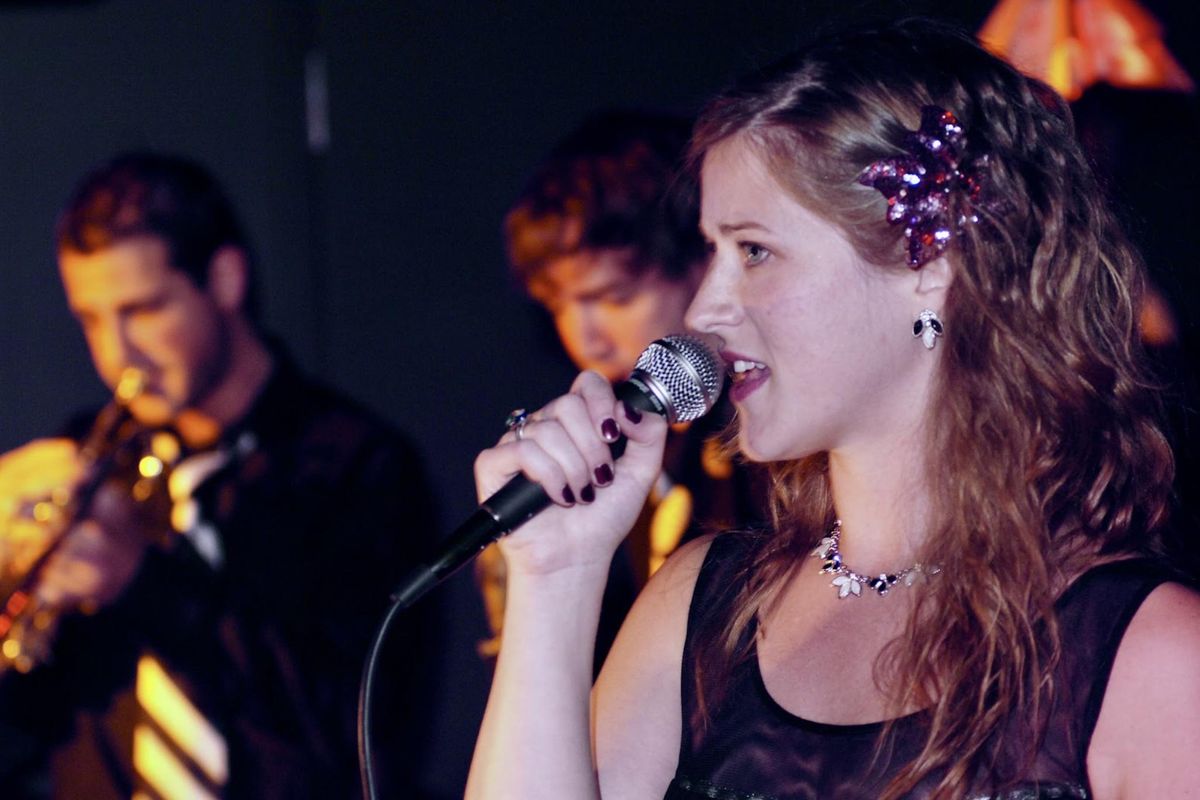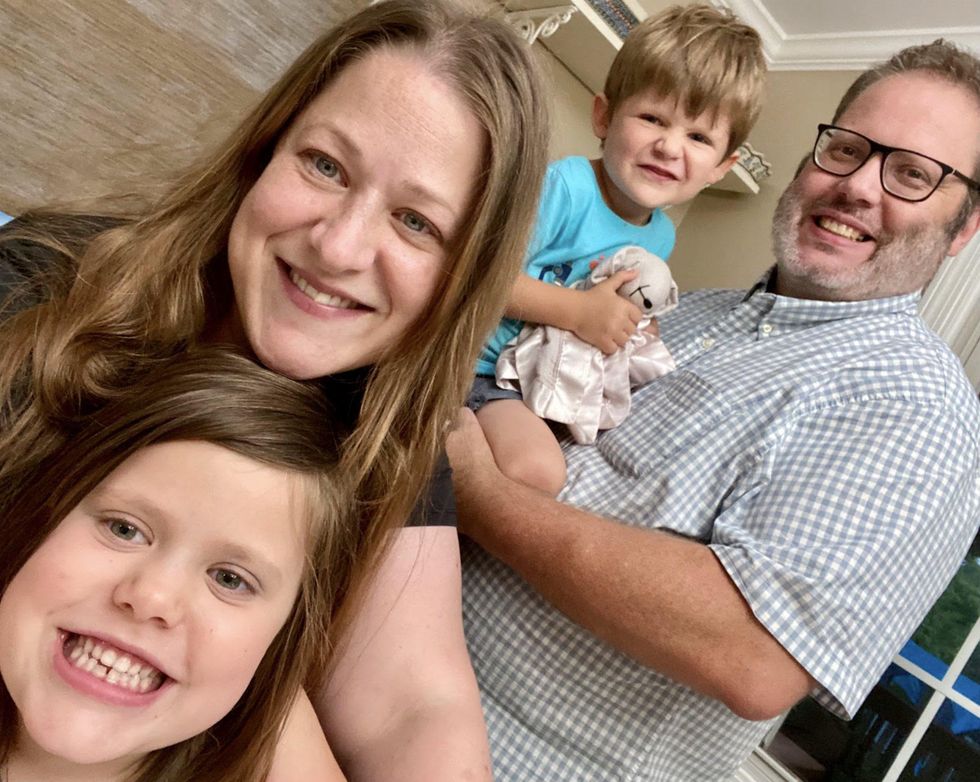
2007 (Photo/Matthew Cottom)
I Lost My Singing Career to Thyroid Cancer — And Found My True Voice
I can’t fix my broken instrument, but I can still bring beautiful music to the world
Jan 20, 2023
Feb 21, 2024
Real Women, Real Stories
Bess McCrary hails from Charlotte, North Carolina and was a performer from her first words, crafting stories and fibs so magnificent that her mother had no choice but to enroll her in acting classes as a toddler. Born into a musical family and bitten by the stage bug at age four, Bess acted professionally until she was ten, and began composing her own songs when she was 13. Bess was still writing songs while she studied Musical Theatre at Catawba College—her work as raw and sincere as it was bold and complex. After two years, Bess was eager to test the limits of her instrument and become a better musician, so she transferred to The University of North Carolina School of the Arts. There she trained classically as a mezzo-soprano and took to her training so well that she was cast by Piedmont Opera Theatre, becoming a professional singer before she graduated, in a genre she had only begun studying two years prior. During this time she perfected a voice powerful enough to fill an auditorium and yet persuasive enough to feel like she was sharing an intimate secret with each member of the audience. These were also the years that Swing and Jazz first made an appearance in Ms. McCrary’s musical history and left indelible impressions on her compositional style.
Full BioLearn about our editorial policies

2007 (Photo/Matthew Cottom)
I can’t fix my broken instrument, but I can still bring beautiful music to the world
January is Thyroid Awareness Month
As told to Nicole Audrey Spector
When I was in college, I was diagnosed with Hashimoto’s disease, also called Hashimoto’s thyroiditis, an autoimmune disease where the body’s immune system attacks its own cells and your thyroid is chronically inflamed.
Thyroid disease runs in my family on my mother’s side, so I wasn’t surprised when I received the diagnosis. Though there is no cure for Hashimoto’s disease, synthetic hormone medication can manage symptoms, and I was confident that with those meds, I could get the condition under control and carry on with my life, which revolved around singing.
For a while, I was doing just fine. Years sailed by as I wrote my songs and sang in my band. I took my formal training in classical voice and a local opera career and moved from North Carolina to New York City, a lifelong dream. I played gigs locally around NYC, toured clubs around the country and recorded my first album of original songs. I’d known I would be a singer and performer since I was 4 years old. Now I was living out my destiny.
It wasn’t until nearly a decade later in a dentist chair for a routine cleaning when destiny took a sharp turn.
“Your thyroid feels significantly enlarged,” the hygienist told me, palpating my neck beneath my jaw.
My hands flew up to feel what she was feeling. There it was. A huge lump.
“You really should see an endocrinologist,” she said. “Get that checked out.”
I’d have run straight to my endocrinologist at that moment if I could have, but instead I stayed stuck in the chair to endure the cleaning, all the while staring with terror at the fluorescent ceiling and trying not to cry.
It wasn’t the thought of possibly having thyroid cancer that scared me so much — it was the thought of possibly needing my thyroid removed, known as a thyroidectomy. The thyroid organ is in an anatomical hug with the larynx (voice box). Removing the thyroid with a scalpel inevitably ventures into territory filled with nerves that power the human voice. When removing the thyroid, the goal of the surgeon is to minimize damage, as opposed to avoiding it entirely, because that would be almost impossible. Paralysis or weakening of the voice is a common, severe complication of the surgery.
In other words, the treatment for thyroid cancer could very likely cost me my singing voice.
But I was jumping ahead of myself, right? Perhaps all was fine. Alas, no. After a string of negative biopsies, one finally came back positive. I had thyroid cancer. To remove it, I would need a total thyroidectomy and the removal of any cancerous lymph nodes.
I met with an ear, nose and throat (ENT) specialist who had a great track record operating on professional singers. But she warned me that she really wouldn’t know what she was dealing with until she opened me up, and that there was always the chance of nicking a nerve and permanently damaging my larynx.
I was terrified, but I knew I had to have the surgery or risk the cancer spreading to other parts of my body. And I was hopeful that there would be no or little damage to my voice based on my ENT’s expertise.
Then I woke up from surgery. As soon as I spoke, all the hope that had been propping me up fell out from under me — and with it, my world. The doctors, along with my incredibly optimistic partner, insisted that the raspiness was likely temporary. A result of the intubation. But in my gut I knew. My voice was different. Damaged.
Weeks passed. Months. My voice just wasn’t fully there. Wasn’t capable of what it was before. Finally my ENT gave me a test to reveal that there was permanent nerve damage to my larynx. My worst fears had come true.
I became severely depressed and hid myself from the world.
All my adult life I had worked a million odd jobs, but I had only ever really been one thing: a singer. Now what was I? I had to still be a singer. I just had to be!
I fought with all the fire in me to record my second album, but the joy of singing was gone. It was torture. Some days, I could barely sing “Happy Birthday” let alone move my voice the way the music I composed required. I know to most people my singing voice is passable, but to me it sounds painful. I can hear myself trying so hard in every note.
After over a year of trying to fix my broken instrument by going to vocal coaches and speech therapists, I eventually accepted that it wasn’t going to happen. The old Bess wasn’t coming back. Singing would never feel the same again. I had to find another way to find that bliss, my reason for being and my most joyful freedom.

It took having time and space away from music to grieve my loss. I created a family and, in many ways, my two children saved me by showing me how far my future stretched. I started writing a memoir. I began doing voice acting work, even working as an audiobook narrator. And I’ve also found my way back to songwriting, in a way that feels healthier for me than it did when I was singing.
I now write songs for other artists to sing, which is a joy all its own, and a lot less stressful than performing myself. I write for artists in many different genres (something I never did before) and also teach a preschool music class, which is adorably refreshing to my musical soul, and which I would not have time for if I was still gigging regularly.
I can’t say that I don’t miss singing my heart out. That would be a lie. But I can say that I’ve discovered more self-growth and delight in giving my music to other people than I had in keeping it for myself. I have more fun exploring music with preschoolers than I did playing for audiences at night clubs, and I know that my voice isn’t really gone. It just sounds different now — and in many ways, it’s stronger.
Have a Real Woman, Real Stories of your own you want to share? Let us know.
Our Real Women, Real Stories are the authentic experiences of real-life women. The views, opinions and experiences shared in these stories are not endorsed by HealthyWomen and do not necessarily reflect the official policy or position of HealthyWomen.